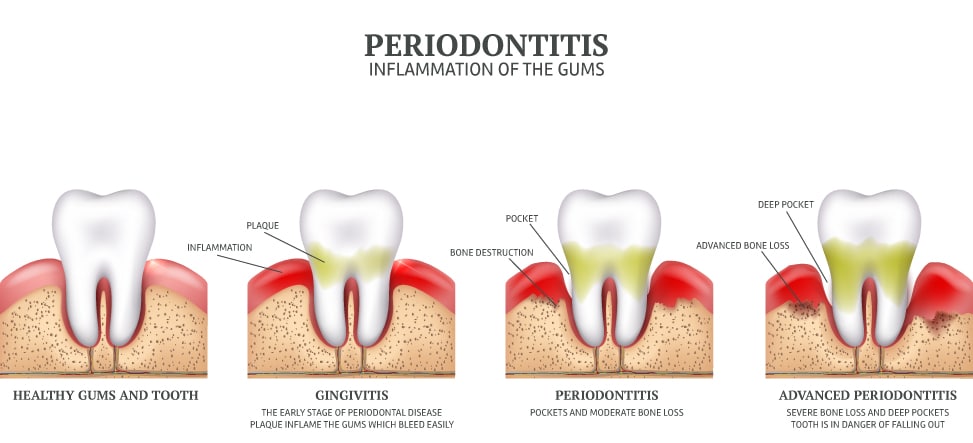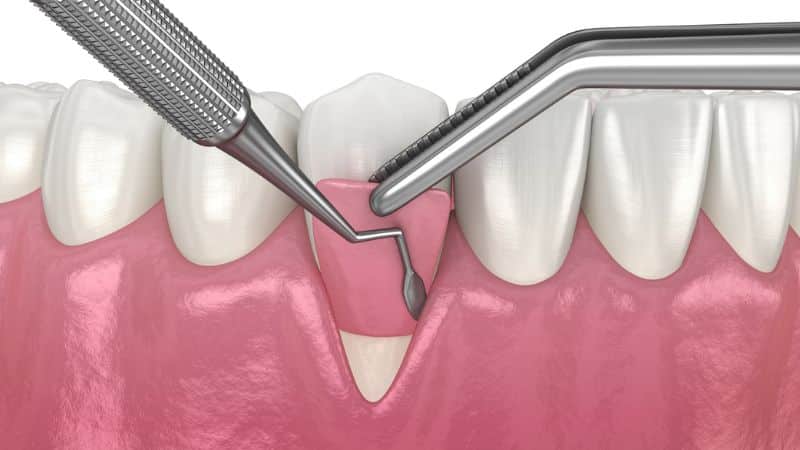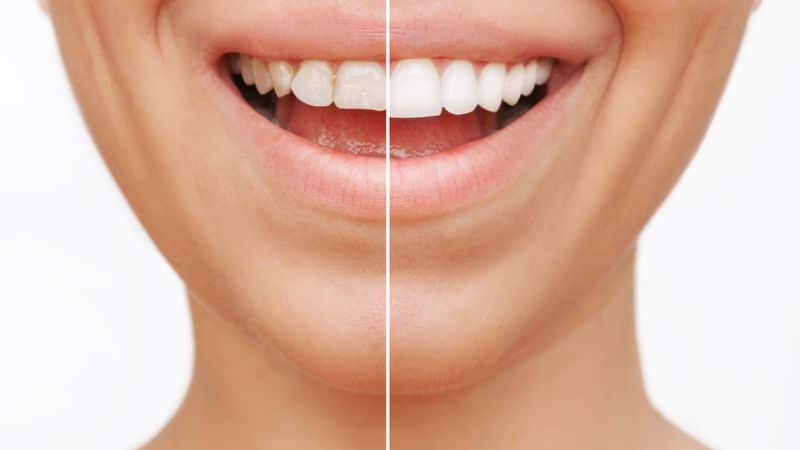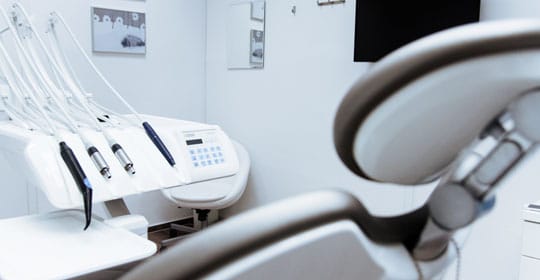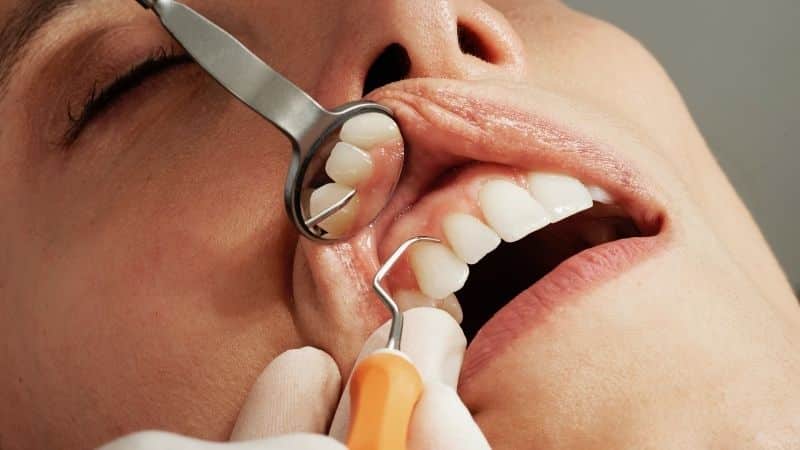
Symptoms and Signs You May Have Gum Disease
Gum disease should not be treated lightly. Therefore, it is important to be aware of gum disease signs and symptoms because not only does gum disease cause bleeding, but it can also cause degradation of oral tissue and teeth.
There are two stages of gum disease: gingivitis and periodontitis. Gingivitis often starts with red, inflamed bleeding gums. This is the early stage of gum disease and can be remedied with routine oral care. However, if left untreated, gingivitis can develop into periodontitis which can lead to gum separation, damage to the bone, and tooth loss.
If you think you may be suffering from gum disease, continue reading to learn more about the causes and signs of gum disease. Timely treatment can ensure you don’t allow further damage to your gums and teeth.
How Does Gum Disease Develop?
Your mouth may be home to many bacterial colonies at any moment in time. This may sound intimidating, but it is important to understand that every mouth is a microbiome for both harmless and harmful bacterial colonies, regardless of how clean it is. However, problems may arise if these bacterial colonies are allowed to grow undisturbed and latch on to your teeth and gums.
Mouth bacteria are constantly in the process of sticking to your teeth and forming plaque. Therefore, it is important to brush your teeth regularly to avoid the accumulation of plaque on your teeth. When left undisturbed for too long, plaque may lead to the development of gingivitis and periodontitis.
When plaque isn’t regularly removed from the surface of your teeth, it gets under the gum and latches onto your teeth in spaces that are impossible to clean with a toothbrush or dental floss. Once plaque begins to set in an area of the mouth where it is not easily removed, the colonies of bacteria multiply and form a harder substance known as tartar or calculus. Now that the plaque and tartar are under the gums, the bacteria reproduce rapidly and start damaging the soft tissue surrounding the teeth.
Symptoms of Gum Disease – Gingivitis and Periodontitis
There are two types of gum disease: gingivitis and periodontitis. The symptoms vary from one to the other. Untreated gingivitis usually leads to periodontitis, the most severe form of gum disease.
Symptoms of Gingivitis
Gingivitis is a minor form of gum disease and is not always painful to those who suffer from it. It is important to recognize if you have these gum disease symptoms and seek timely treatment before it progresses into periodontitis.
- Bleeding Gums: Gums that bleed easily are one of the first signs that you may have gingivitis. Bleeding after brushing your teeth or flossing is not normal and is a sign that bacteria are affecting the health of your gums.
- Discoloration of the Gums: Healthy gums are a pale pink color. If you notice that your gums are various shades of red, purple, or white, you may have gingivitis.
- Swollen or Inflamed Gums: Healthy gums are firm and shouldn’t hurt when touched. Gums that are noticeably puffy, swollen, or hurt when touched are likely suffering from gingivitis.
- Gum abscess: A gum abscess arises when bacteria from plaque or tartar find a way into a pocket between the gums and teeth and start to multiply. This creates a swollen growth that is filled with pus and is painful to the touch.
Symptoms of Periodontitis
Periodontitis is a serious infection of the gums. Left untreated, it can lead to tooth loss and other significant health complications. This serious infection damages soft tissue and, when left untreated, can destroy the bone that supports your teeth. If you experience any of the following symptoms of gum disease, it is important to see your dentist right away.
- Receding gums: Teeth that appear to be lengthening in size are a sign of receding gums. With advancing periodontitis, bacteria trapped beneath the gum line destroy the soft tissue and causes the gums to wear away and expose the root of the tooth.
- Sensitive Teeth: Teeth that hurt when drinking or eating are a sign that the gums have receded and left the root of the teeth exposed. The root of teeth has sensitive nerve tissue that once exposed can cause sharp pain upon coming in contact with hot or cold food and drink.
- Loose Teeth: Periodontitis eventually leads to the wearing away of bone mass around the tooth. When this happens, the tooth is no longer firmly anchored in place, and it may feel loose or even shift over time. A noticeable change is that teeth may feel loose, or you may find that your overall bite has changed, and your teeth aren’t aligned like they used to be. Your dentist can determine whether you may need a gum graft or another type of gum treatment or surgery.
- Bad Breath: As bacteria reach larger numbers and begin to erode the bone and soft tissues in your mouth, they release toxins. The presence of these toxins in your mouth may be noticeable as a change in the odour of your breath or a foul taste in your mouth.
- Black gums: Black gums are a sign that you have a rare condition called acute necrotizing periodontal disease. This condition is caused by an infection which has a rapid onset and can destroy gum tissue and the surrounding bones at a swift pace. Any individual suffering from this condition requires immediate medical attention because it is likely caused by other underlying health concerns.
Risk Factors Associated with Gum Disease
The risk of gum disease may increase due to several factors. It is important to be conscious of the influence your daily habits have on your body. If you have any of the health issues listed below or exhibit these factors, the possibility of periodontitis is significantly increased.
- Diabetes
- Genetics
- Immuno-deficiencies
- Stress
- Smoking
- Poor oral health
- Crooked teeth
- Medications
- Hormonal changes
Periodontitis can be a serious detriment to your health and is not just a cosmetic issue. If you see signs and symptoms of gum disease, contact us today and we can set up an appointment. Our West Island Dentists in Pierrefonds will assess the condition of your teeth and gums to provide suitable treatment and get your smile back on track.

